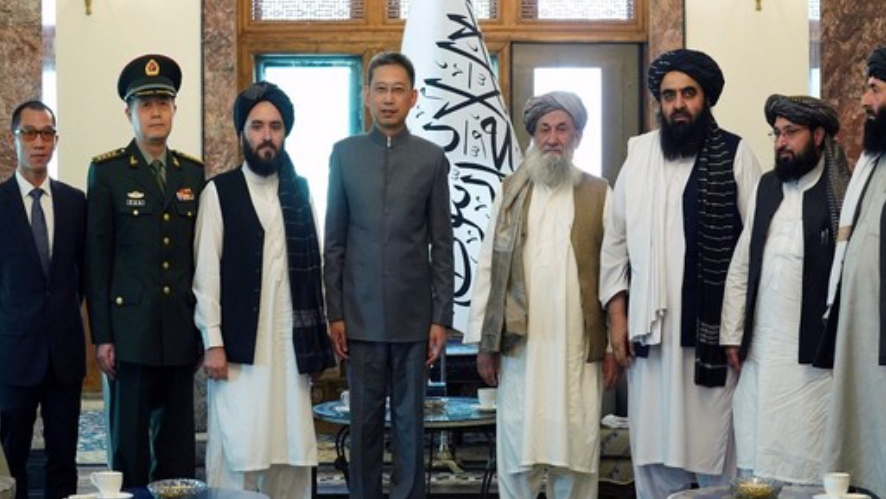Hopeful Beginnings, Harsh Realities: The Juxtaposition of Climate Anniversaries and Global Inaction.
- SIS Blog

- Dec 6, 2023
- 3 min read
Updated: Oct 7, 2024

By Sakshi Sanjay Ugale
Despite commemorating climate milestones in 2023—61 years since Rachel Carson's "Silent Spring," 51 years since the Stockholm Conference, and 31 years since the UNFCCC—the Global Stocktake report detailed a sobering fact: the world is not on track to achieve the targets established in the Paris Agreement.
Numerous conventions have taken place and still, we have not achieved any significant growth as only hyperbole is given by leaders at global negotiations. “Between 2030 and 2050, climate change is expected to cause approximately 250 000 additional deaths per year, from undernutrition, malaria, diarrhoea and heat stress alone”(WHO).

However, it is important to understand that climate change is not a great equalizer and it does not affect all of us equally. In Global climate risk index (2021), The top 10 countries that have experienced the most severe impacts of climate change during 2000-2019, are mostly LDC and developing countries of the global south. This observation highlights the ‘Climate Justice Paradox’, which means those who are the least responsible for climate change are the most vulnerable to its effects. These circumstances raise some fundamental questions- If the world was not completely oblivious about the climate change since more than a half century then why have we achieved very little progress? And why is it so difficult to get countries work together on this issue?

Various scholars have attempted to address these questions, including Roberts and Parks, who prioritize inequality as the primary factor driving non-cooperative behaviour between the Global North and Global South and seek to elucidate this through two central pathways, first the extreme poverty and relative powerlessness of the majority of the global south nations which hinders their ability to negotiate with the global north. This has entrenched differing worldviews and beliefs, leading to widespread mistrust and polarized expectations regarding how to tackle climate-related issues. Similarly, Joyeetha Gupta argues there exists a structural imbalance of knowledge between developing and developed countries which results in ultimate deadlock. Another scholar, Chukwumerije Okereke, criticizes the international environmental regime's notion of justice, which he believes aligns with neoliberal economic and political interests. Okereke argues that these neoliberal ideas of justice do not provide a solid foundation for achieving global sustainable development and environmental justice. He contends that they fall short of delivering "distributive justice".
The Global Stocktake report highlights the critical importance of climate finance and the transfer of climate-related technology, particularly for the less developed and developing countries in the global South. This idea is not a recent one but dates back three decades. In 1992, the UNFCCC, in Article 4.5, explicitly stated that Annex I parties should make every practical effort to promote, facilitate, and financially support, when appropriate, the transfer of environmentally sound technologies and knowledge to other Parties, especially those in developing countries. However, despite these longstanding principles, progress in this regard has been limited due to various geoeconomic and geopolitical factors that hinder cooperation. It is becoming increasingly urgent to explore more radical approaches to cooperation that go beyond the traditional neoliberal framework.
The challenge in reaching a global agreement on climate change stems from the fact that while we are all collectively motivated to address it, our individual commitment often falls short, as noted by Frame and Matthews in 2017. In this context, it's crucial to recognize that we all share this "spaceship earth" and are part of one global family, echoing the ancient wisdom of "Vasudhaiva Kutumbakam" which perceives the world as one interconnected family. Much like how we instinctively care for the most vulnerable members of our own family, we must extend our support and solidarity to vulnerable nations. It is not like we do not have the memories of global cooperation. The COVID-19 pandemic has shown that when the world unites to confront a global crisis, remarkable achievements become possible through our interconnectedness for shared goals. This experience serves as a powerful reminder of the potential for global cooperation to overcome significant challenges. Likewise, we should cooperate on a global level in the most unconventional and radical way to fight against the climate change.
Sakshi Ugale is pursuing her post graduation in Political Science and International Relations at the School of International Studies, Jawaharlal Nehru University, New Delhi. Her research interests lie in climate justice, environmental policy and governance with focus on the Global South.




